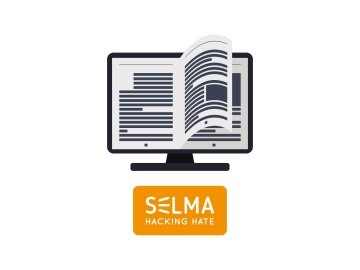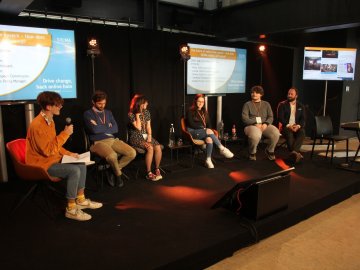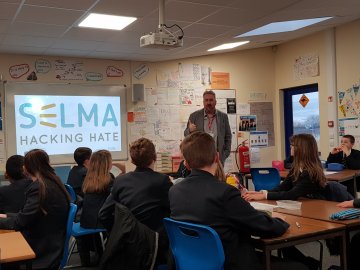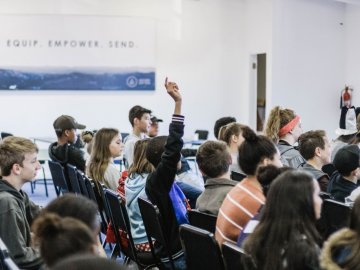Online hate speech is a growing problem. People often experience the internet to be a hostile space. Hateful messages are increasingly common on social media. To complement existing initiatives to regulate, monitor or report online hate speech, a more pro-active answer is clearly needed.
SELMA (Social and Emotional Learning for Mutual Awareness) is a two-year project co-funded by the European Commission1 which aims to tackle the problem of online hate speech by promoting mutual awareness, tolerance, and respect.
Building upon a Social and Emotional Learning (SEL) approach, SELMA empowers young people to become agents of change; it helps them to better understand the phenomenon of online hate; it provides them with tools and strategies to act and make a difference.
What is Social and Emotional Learning?
SEL is the process through which children and young people acquire and apply the following set of competencies:
- Self-awareness: The ability to accurately recognize one's own emotions, thoughts, and values and how they influence behavior.
- Self-management: The ability to successfully regulate one's emotions, thoughts, and behaviors in different situations — effectively managing stress, controlling impulses, and motivating oneself.
- Social awareness: The ability to take the perspective of and empathize with others, including those from diverse backgrounds and cultures.
- Relationship skills: The ability to establish and maintain healthy and rewarding relationships with diverse individuals and groups.
- Responsible decision making: The ability to make constructive choices about personal behavior and social interactions based on ethical standards, safety concerns, and social norms.
SELMA will use this set of competencies to develop a preventive and remedial response to the problem of online hate speech. It will subscribe to a number of key principles:
- Children and young people can and should be empowered to become agents of change in their offline and online community.
- Education responses to online hate speech should not preach what is "good" or "bad". Rather, they should encourage and enable children and young people to critically and creatively engage with the problem of online hate speech and its possible solutions:
- What is online hate speech?
- How does it affect my personal and social environment?
- Which role can I play – together with my peers – in addressing online hate speech and changing my community for the better?
- Pathways of change can only be successful when they follow a holistic plan of action:
- it should combine information, knowledge and skills training, with in-depth social and emotional learning;
- it should consider online hate as a pattern of behaviour, interconnected with the social and cultural contexts in which it takes place;
- it should actively involve pupils and teachers, but also their peers, parents and other professionals and carers, in dialogue with a wider range of education, industry and civil society players.
- The SELMA approach will be developed in an innovative yet evidence-based manner.
How will this work in practice?
In line with the systemic approach SELMA envisions, a variety of activities and outputs are put in place to ensure schools and out-of-school communities jointly support a culture of change in which children and young people feel empowered to act and make a difference. Activities include:
- Empirical research.
- The co-creation of a SELMA Toolkit.
- Face-to-face and online training and counselling for young people.
- Training/briefings to educational staff/teachers and school leaders as well as social workers, parents and other carers, including a Massive Online Learning Course (MOOC).
- Education Task Force meetings for EU policy makers, Ministries of Education and IT companies to facilitate mutual learning and cooperation, shaping their respective policies, while taking into account the perspective of young people and civil society.
- The dissemination of outputs, results and lessons learned. A hackathon, an international conference, as well as different online (mini-) campaigns, including a final education/awareness week will ensure cross-European outreach.
Watch this space to see how SELMA will help to hack online hate for good!
1 Under the European Union's Rights, Equality and Citizenship Programme (2014-2020). More information is available at http://ec.europa.eu/justice/grants1/programmes-2014-2020/rec/index_en.htm.






